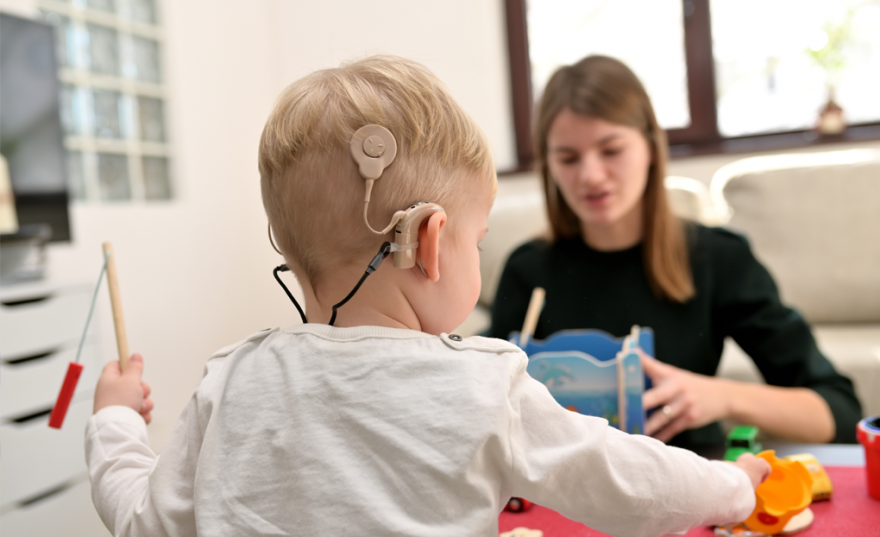Deafness and autism share many developmental features in affected children, including language delays, problems with specific language functions, pragmatic language difficulties and delayed theory of mind.1 Unsurprisingly, “diagnostic overshadowing” — whereby autism might mask hearing loss or intellectual disability, and vice versa — is a real concern in children affected by both conditions.2
In 2019, Alys Young and colleagues asked eight parents to give their perceptions on the interaction between deafness and autism in their child. Some parents said that practitioners had made false attributions about their child’s behaviours and what is assumed to be normal behaviour for a deaf child. Others said that comparisons were made between their child’s development and the typical trajectories of development for a deaf child. While sometimes useful, Young et al. explain that this comparison could mask other underlying medical or genetic conditions. Finally, some parents reported that deafness was not relevant to them when initially considering that their child might have autism.
The researchers also asked the parents how a child, who experiences deafness and autism, affects their family’s everyday life. A few key points were raised, including: that autism has more of an effect on some children than deafness, that autism affects sign language development, that deafness can interfere with sound and sensory stimulation, and that working out what behaviours might be due to deafness and what might be due to autism is difficult.
Although only eight parents were interviewed, the insights gained from these interviews evoke many implications for clinical practice. For example, Young et al. explain that clinicians should have a firm understanding of typical deaf child development, to ensure that false attributions are not made. When devising diagnostic/support pathways, clinicians should also consider how hearing and deaf children interact with their environment. Perhaps most importantly, clinicians must recognize that the interaction between autism and deafness is dynamic: how a parent conceptualizes this interaction is important, when tailoring support packages to affected families.
Referring to
Young, A., Ferguson-Coleman, E., Wright, B. & Le Couteur, A. (2019), Parental conceptualizations of autism and deafness in British deaf children. J. Deaf Stud. Deaf Educ. 24: 280-288. doi: 10.1093/deafed/enz002.
References
1Szarkowski, A. et al. (2014), A summary of current understanding regarding children with autism spectrum disorder who are deaf or hard of hearing. Semin. Speech Lang. 35: 241–259. doi:10.1055/s-0034-1389097.
2Wright, B. et al. (2012), Does socio-emotional developmental delay masquerade as autism in some deaf children? International Journal of Mental Health and Deafness, 2: 45-51.
Glossary
Theory of mind: a social-cognitive skill to attribute mental states to oneself and to other people so as to interpret, explain and predict behaviour.
